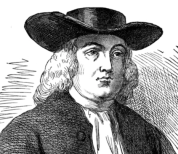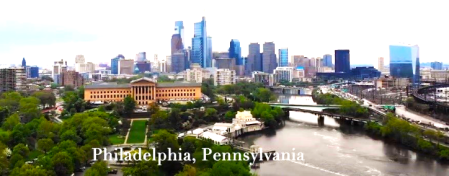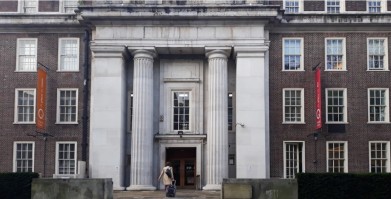Peace historian Peter van den Dungen, who gave some assistance to the American filmmaker David Peters and appears briefly in the film, writes:
When there is so much war and hate in the world, it is most timely to bring Penn’s work and wisdom to a large audience through this great film. Penn’s Seed: The Awakening, is a beautiful film with informative and inspiring comment and quotations. This must be the best, and longest, documentary about William Penn; the question of European and world peace is addressed towards the end. a documentary about the life and legacy of William Penn, an early advocate of religious freedom and democracy.
This film explores the historical contribution of Penn to the foundation of the United States, but more importantly explores how the latent legacy of Penn’s commitment to global peace and religious freedom is emerging in both national and global contexts. The film is freely available here https://youtu.be/6p1zGrU7YDo.
Friends House London. Photo by Simon Burchell on Commons.wikimedia.org
He regrets that in Quaker circles William Penn (1644 –1718) is now being ‘cancelled’ because he owned slaves. Following the Black Lives Matter protests, and the removals of statues, plaques, street names and other memorials. Britain Yearly Meeting (BYM) announced on April 10, 2021 “In a step towards becoming an actively anti-racist church, Quakers will cease to name a room in their London offices after William Penn” (Friends Journal).
This action might be reconsidered, as further reading indicates that, though Penn’s attempts to improve the lives of all slaves were rejected by Quaker decision makers, they would have influenced later Quaker witness against slavery. Within the close-knit Society of Friends his work must have been well known to anti-slavery campaigner John Woolman, born in the nearby Quaker-owned colony of West New Jersey two years after Penn’s death.
Throughout the colonial period Quakers “continued to hold slaves as few believed the practice immoral as long as owners treated their slaves fairly and without violence” (African presence in Pennysylvania).
 William Penn (left) is said to have treated his servants/slaves well, advocating their right to marriage, but this proposal was rejected by the Provincial Council (Quakers and Slavery).
William Penn (left) is said to have treated his servants/slaves well, advocating their right to marriage, but this proposal was rejected by the Provincial Council (Quakers and Slavery).
Like other Quakers in Pennsylvania at the time, Penn (above left) referred to his workers as ‘servants’ and their labour as ‘service’. His attitude towards them was described as paternalistic – he looked upon them as members of his family.
Pennysylvanian History also records that “At one point, he proposed that slaves in Pennsylvania be freed after a certain period of bondage. He suggested the creation of a township, called Freetown, where freed slaves could live, but the hard-nosed Pennsylvania Assembly [nearly all Quakers] rejected the idea”.
William Penn made a will in 1701 freeing his slaves but a later will did not. His financial status had deteriorated and it has been suggested that the slaves might have been seized to cover his crippling debts (A Brief History of William Penn).
Forty years after Penn’s death, Quakers in Philadelphia decided to stop buying and selling slaves and slowly rooted out slavery from their community.
–
Peter van den Dungen added later:
“You will have seen Andrew R. Murphy in the film; I believe that his William Penn: A Life (Oxford Univ. Press, 2019) is the most authoritative biography available. (We met five years ago at the Penn conference organised at the university in Rome). I have copied what he says about Penn and slavery in case you would find any of it useful”. The extract has been posted in the history section.
o0
0
0
Tags: American filmmaker David Peters, John Woolman, Peace historian Peter van den Dungen, Quakers in Philadelphia, slavery


Leave a comment